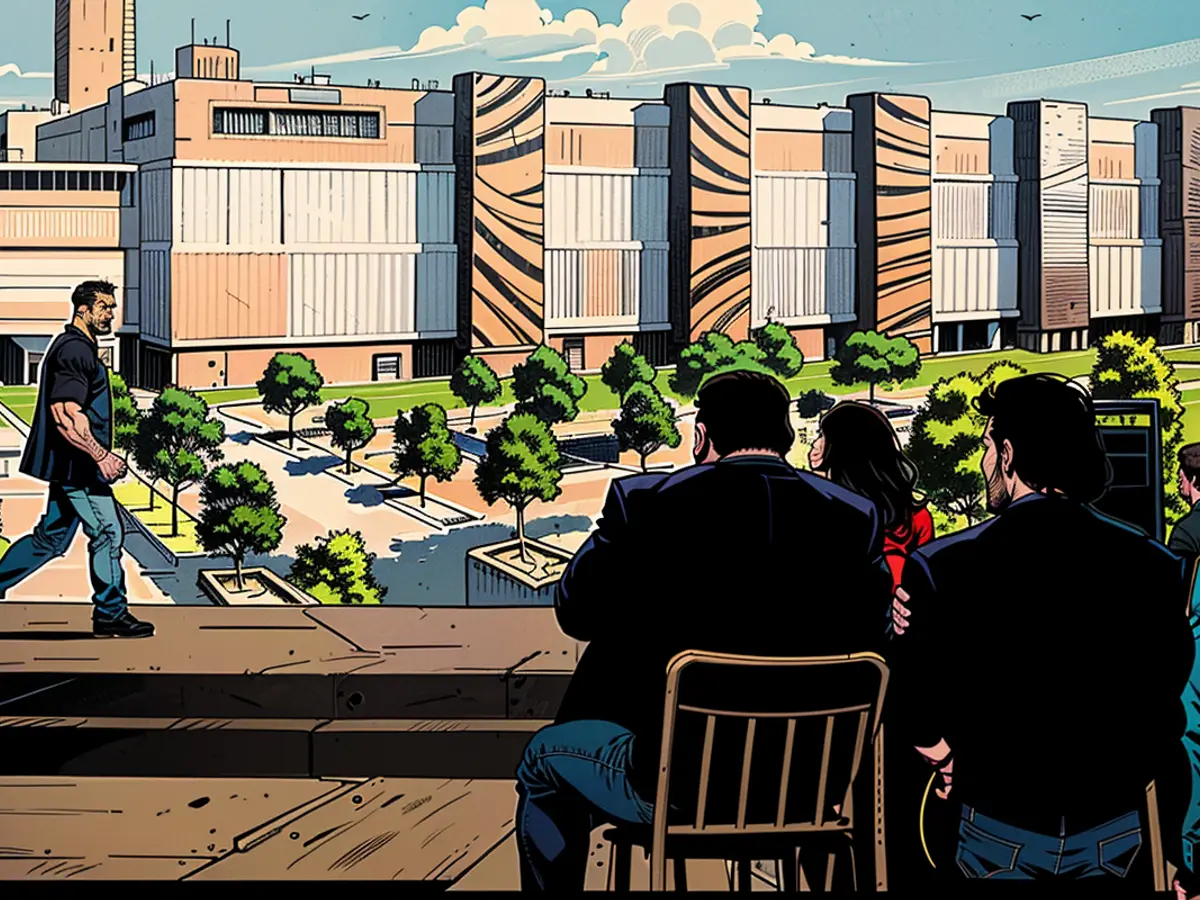Wolfspeed Permanently Shifts Chip Production Facility to Saarland
Construction is ongoing in Dresden, but not in Magdeburg or the Saarland. This summarizes the current status of the proposed large chip factories in Germany. In the southwest, there's a heavy dose of disappointment due to the project's delay, but it's not entirely nixed.
For now, the planned chip factory by US semiconductor company Wolfspeed in the Saarland is on hold. Saarbrücken's Minister-President Anke Rehlinger announced the project's postponement "indefinitely". The sluggish pace of electrification in Germany and Europe, along with the "production situation" in the US, are cited as reasons for the hold-up.
Rehlinger referred to this as a "setback" for her state and the structural change in the Saarland. However, she clarified that the project isn't cancelled but merely pushed back on the timeline to an undetermined future. Wolfspeed has stated its commitment to the Saarland project in principle.
Wolfspeed and automobile supplier ZF from Friedrichshafen disclosed plans for the chip factory in Ensdorf, Saarland, in February 2023. The plant was set to become "the world's largest and most advanced factory for silicon carbide semiconductors", according to Wolfspeed CEO Gregg Lowe. These chips are primarily used in electric car inverters.
Wolfspeed had planned to invest around 2.7 billion euros, with ZF contributing 170 million euros. This collaboration was supposed to drive ZF's transition to electric motors. However, the costs associated with the powertrain transition are taking a heavy toll on the company. ZF is planning thousands of job cuts in the coming years, while Wolfspeed is grappling with financial hardships.
ZF denies the blame
However, ZF has already refuted any role in the project's delay. according to reports by "Handelsblatt", based on government and industry sources, ZF no longer wishes to participate in the chip factory. A ZF spokesperson clarified, "Wolfspeed is responsible for the project. ZF has always actively supported it."
The future of the project is unclear. It's undetermined whether ZF would participate in a later investment by Wolfspeed, said Rehlinger. That's a decision for the two companies to make. The Ensdorf site, where the former coal-fired power plant was demolished last summer, had been slated to house the factory from 2025.
This being put on hold is also a blow to the federal government and Federal Economics Minister Robert Habeck. Around half a billion euros in state funding were earmarked for the project.
However, Federal Finance Minister Christian Lindner's skepticism towards Habeck's plans for subsidizing chip manufacturers with state aid has been validated. "Competitive structures cannot be planned on a political drawing board and financed with subsidies," Lindner said in "Wirtschaftswoche". "This outdated concept, which dates back to the Merkel era and is still advocated by the Greens today, is not a blessing for taxpayers and workers."
Despite the postponement of the chip factory manufacture by Wolfspeed in the Saarland, the company has expressed its commitment to the project in principle. The delay in the Saarland factory's construction is not affecting the plans for the manufacture of semiconductors in Dresden.
Regarding the project's delay, ZF has denied any involvement and clarified that they continue to support the chip factory, leaving the future of the project undetermined. The proposed semiconductor factory in Ensdorf was intended to be the world's largest and most advanced for silicon carbide semiconductors, primarily used in electric car inverters.








